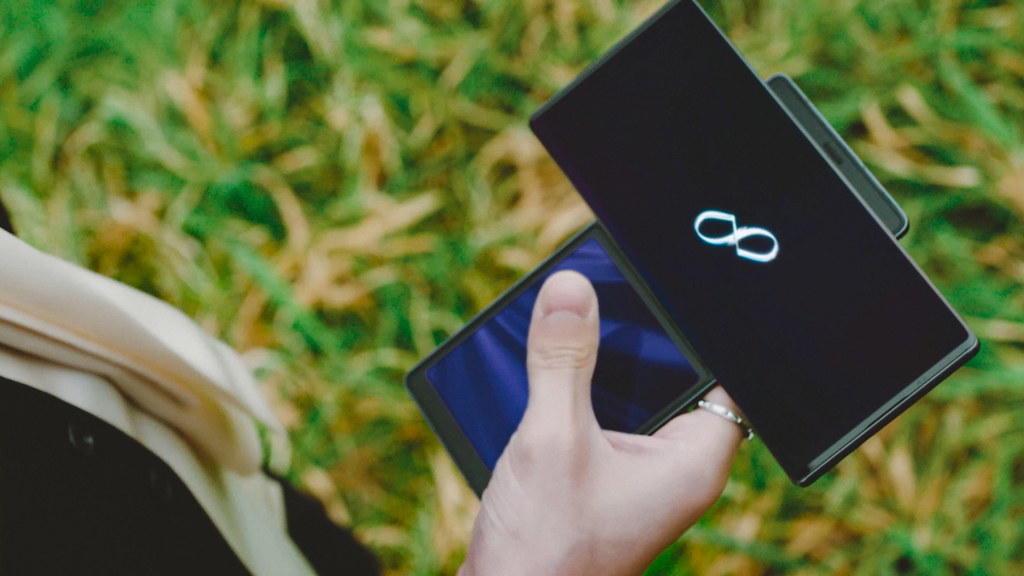 APPS
APPS
 APPS
APPS
 APPS
APPS
LG Electronics Inc. said today that it’s exiting the smartphone business after years of operating at a loss.
The decision comes after an announcement in January that LG was exploring all possible options for the flailing division, which is said to have accumulated losses of about $4.5 billion over the last six years.
The move is being framed as a “strategic decision” that will enable LG to better focus its resources in other areas, such as smart homes, robotics, artificial intelligence, connected devices, electric vehicle components and business-to-business solutions, the company said.
LG, which is still ranked as the third most popular smartphone brand in North America, has reportedly struggled in other markets from competition from Chinese rivals. In the last year it shipped around 28 million handsets globally, but that figure was notably far below that of its South Korean rival Samsung Electronics Ltd., which sold 256 million devices in 2020. LG executives said that the smartphone market had become “incredibly competitive.”
The smartphone business is the smallest of LG’s five units, and accounted for just 7.4% of its revenue in 2020. Its global market share in the smartphone market is about 2%.
In the past couple of years LG had spent a lot of money trying to innovate its way back to competitiveness. Last year, for example, it launched its revolutionary T-shaped Wing handset (pictured), featuring a large screen that swivels out to reveal a second, smaller display underneath. The company was also reported to have been developing a rollable smartphone that was expected to go on sale this year, but today’s announcement means that device is unlikely to come to fruition.
Analyst Charles King of Pund-IT Inc. told SiliconANGLE that LG’s decision to close its smartphone business makes imminent sense considering its painful losses over the last six years.
“I believe the company was caught between the pincers of affordable Chinese makers focused on “just good enough” products, and vendors like Apple, Samsung and Google that are pulling out the innovation stops with their own handsets,” King said. “The result is a market with little room for high volume, middle of the road vendors like LG.”
“LG was in a tough spot in the U.S. as it couldn’t invest enough in sales and marketing to compete with Apple or Samsung,” said analyst Patrick Moorhead of Moor Insights & Strategy. “If a company can’t invest in sales and marketing then the product has to carry the day, but LG’s products just weren’t differentiated enough.”
Holger Mueller of Constellation Research Inc. said smartphones are a tough business and that a number of big and formerly well established companies have been forced to throw in the towel, including Nokia Corp., Sony Electronics Corp, Siemens AG and BlackBerry Ltd.
“In a market where economies of scales are everything, losing touch with volume and missing innovation has always been deadly,” Mueller said. “Today it is the turn of LG, which had a great run as a number 3 to 5 player but never made it beyond that. It makes sense for the company to stop the bleeding cash.”
LG still has a very strong consumer electronics business in areas such as televisions and home appliances. It remains the second-biggest TV brand in the world behind Samsung. In December, it launched a joint venture with automotive supplier Magna International Inc. that will focus on electric vehicle components.
“Moving forward, LG will continue to leverage its mobile expertise and develop mobility-related technologies such as 6G to help further strengthen competitiveness in other business areas,” a spokesman added.
LG said it will continue to sell its existing smartphone inventory and will provide service support and updates to existing customers. However, the smartphone business will be wound down by July, LG said.
Analysts say LG’s exit from the smartphone business will likely benefit rivals such as Samsung and Chinese firms such as Guangdong Oppo Mobile Telecommunications Corp. Ltd., Vivo Communication Technology Co. Ltd. and Xiaomi Corp.
Support our mission to keep content open and free by engaging with theCUBE community. Join theCUBE’s Alumni Trust Network, where technology leaders connect, share intelligence and create opportunities.
Founded by tech visionaries John Furrier and Dave Vellante, SiliconANGLE Media has built a dynamic ecosystem of industry-leading digital media brands that reach 15+ million elite tech professionals. Our new proprietary theCUBE AI Video Cloud is breaking ground in audience interaction, leveraging theCUBEai.com neural network to help technology companies make data-driven decisions and stay at the forefront of industry conversations.